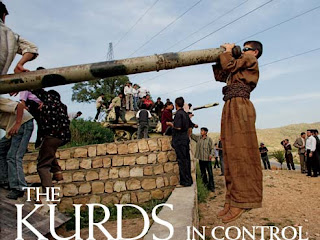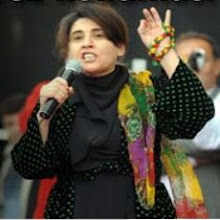By Amnesty International

14 April 2009
Security forces in Iraq's autonomous Kurdistan Region operate outside the rule of law and regularly abuse their authority, according to a new Amnesty International report.
During a fact-finding mission to the Kurdistan Region in 2008, Amnesty International researchers found many cases of people arrested and arbitrarily detained by Asayish (security) officials, including some who were tortured and others who were forcibly disappeared and whose fate and whereabouts remain unknown.
Torture methods include electric shocks to different parts of the body; beatings with fists, cables and metal or wooden batons; suspension by the wrists or ankles; beating on the soles of the feet (falaqa); sleep deprivation and kicking.
Amnesty International has called on the Kurdistan Regional Government (KRG) to hold those responsible for human rights violations to account.
"The Kurdistan Region has been spared the bloodletting and violence that continues to wrack the rest of Iraq and the KRG has made some important human rights advances," said Malcolm Smart, Director of the Middle East and North Africa Programme. "Yet real problems - arbitrary detention and torture, attacks on journalists and freedom of expression, and violence against women - remain and need urgently to be addressed by the government."
Hundreds of detainees who were held without charge or trial for several years have now been released but the authorities have failed to significantly curb the powers of the Asayish. They have also failed to rein in the Parastin and the Dezgay Zanyari, the security arms of the two main Kurdish political parties - the Kurdistan Democratic Party (KDP) and the Patriotic Union of Kurdistan (PUK) - which jointly comprise the KRG.
"The KRG must take concrete steps to rein in these forces and make them fully accountable under the law if recent human rights gains are to prove effective," said Malcolm Smart. "The authorities must do more to uphold media freedom and redouble their efforts to overcome discrimination and violence against women, and end the vicious cycle of so-called honour killings and other attacks on women by men who wish to subordinate them."
Amnesty International's report cites several cases of women who were murdered by male relatives in 2008. These include Cilan Muhammad Amin, 23, who was strangled to death, apparently by her brother, because of her suspected relationship with another man.
Another woman, Kowan Yunis Qadir, aged 17, was shot dead after she sought a divorce from her husband.
In other cases, women and girls are reported to have committed suicide because of violence, or the threat of it, from their male relatives, including 13-year-old Rojan, who burnt herself to death in March 2008 to escape forcible marriage to an adult man.
"Such cases show how much more still needs to be done by the KRG authorities to give women and girls effective protection against violence from those who wish to control their behaviour or force them into marriages against their will," said Malcolm Smart. "No effort should be spared to prosecute and imprison those who commit violence against women, and to make clear that those who perpetrate these crimes cannot escape justice.
Download EnglishDownload Arabic

















6-LionALion(07-13-115)1.jpg)
































